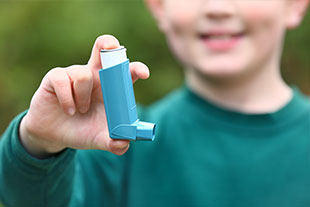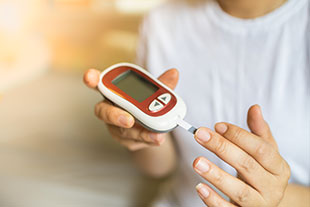Make Your Doctor a Partner in Health
Make Your Doctor a Partner in Health
Heart disease is often avoidable. Following a heart-healthy lifestyle doesn’t have to be complicated.
Find ways to include heart-healthy habits into your lifestyle—and you may well enjoy a healthier life for years to come.
High blood pressure and high cholesterol can damage heart and blood vessels. Yet without testing, you won’t know if you have these conditions. Know your numbers and whether you need make changes to your lifestyle.

Blood Pressure
Today, regular blood pressure screenings start in childhood. Adults should have their blood pressure checked at least every two years. You may need more frequent checks if your numbers need work or if you have other risk factors for heart disease. Optimal blood pressure is less than 120/80 millimeters of mercury.
Cholesterol Levels
Adults should have their cholesterol measured at least once every five years. You may need more frequent testing if your numbers warrant it or if you have risk factors for heart disease. Even some children may need their blood cholesterol tested if they have a strong family history of heart disease. An acceptable level of HDL cholesterol is at least 40mg/dL. Optimal HDL levels are higher than 60. An optimal level of LDL cholesterol is under 100 mg/dL.
Some years ago “cholesterol” got a bad name. Now doctors know much more about it and as it turns out, cholesterol is terribly important to a healthy body. In fact, cholesterol helps form the structure of every cell in the body.
Cholesterol is a fatty substance formed in the liver or obtained from the foods you eat and found naturally in human blood. Cholesterol helps with digestion, protects the nerves, aids in tissue and hormone formation and performs other important functions in your body.
But there are two kinds of cholesterol—one is good for you and one is not good. Too much of the bad cholesterol called “LDL” and not enough of the good cholesterol called “HDL” has been linked to heart disease and stroke. What’s important is to maintain the optimum ratio between the two. Your diet definitely impacts this ratio so it’s important to exercise and eat heart-healthy foods.
If necessary, your doctor can prescribe cholesterol medications such as statins, to improve your body’s ratio of good vs. bad cholesterol to reduce your risk of cardiovascular disease.
For Men
Heart disease is the number one killer, but that doesn’t mean you can’t do anything about it. “Doing something about it” is a strategy that is proven to work. Take action to avoid heart disease—avoid smoking, get regular exercise and eat healthy. Adopt a healthy lifestyle today to avoid heart problems in the future.
Chemicals in every puff?
Concerning heart disease prevention, no amount of smoking is safe. Even smokeless tobacco and low-tar and low-nicotine cigarettes are risky, as is exposure to secondhand smoke. Smoking or using tobacco products is one of the most significant risk factors for developing heart disease. And it’s no wonder why: tobacco smoke contains more than 4,800 chemicals! Many of these can damage your heart and blood vessels, making them more vulnerable to narrowing of the arteries (atherosclerosis). Atherosclerosis can ultimately lead to a heart attack.
Moreover, the nicotine in cigarette smoke means extra work for your heart since it causes blood vessels to narrow and increases heart rate and blood pressure. Carbon monoxide in cigarette smoke replaces oxygen in the blood. This also increases your blood pressure by forcing your heart to work harder to supply enough oxygen. Even so-called “social smoking”—only smoking while at a bar or restaurant with friends—is dangerous and increases the risk of heart disease. Don’t do it.
These smoke clouds do have a silver lining—when you quit, your risk of heart disease drops dramatically within just one year. Regardless of how many years and how many packs a day you have smoked, you will begin to reap significant rewards immediately.
Make fitness a top priority
Regular exercise can reduce your risk of heart disease. And by combining physical activity with maintaining healthy weight, etc., the payoff increases exponentially. Physical activity improves self image and morale, helps you control your weight and can reduce your chances of developing high blood pressure, high cholesterol and diabetes. It also reduces stress, another factor in heart disease.
Doctors recommend at least 30 to 60 minutes of moderately intense physical activity most days of the week. That can include exercise in a gym, yard work, taking the stairs, housekeeping, washing the car or even walking the dog. Any kind of physical activity offers heart benefits, so do as much as you can. Surprisingly, you’ll get the same benefit even if you break your workout into 10-minute sessions. You don’t have to exercise strenuously to achieve benefits, but you can see bigger benefits by increasing the intensity, duration and frequency of your physical exertion.
Eat right, drink right
Help protect your heart by eating foods low in fat, cholesterol and salt. Fruits, vegetables, whole grains and low-fat dairy products help protect your heart. Legumes, low-fat sources of protein and certain types of fish also can reduce your risk of heart disease. Most people should add more fruits and vegetables to their diet—with a goal of five to 10 servings a day. Eating fruits and vegetables helps prevent heart disease and cancer, too.
Limiting certain fats is also key. There are four kinds of fat—saturated, polyunsaturated, monounsaturated and trans fat. Saturated fat and trans fat increase the risk of coronary artery disease by raising cholesterol levels in your blood. Sources of saturated fat include beef, butter, cheese, milk, and coconut and palm oils. Trans fat may be worse than saturated fat because it both raises your low-density lipoprotein (LDL—or “bad” cholesterol) and lowers your high-density lipoprotein (HDL—or “good” cholesterol). So stay away from deep-fried fast foods, bakery products, packaged snack foods, margarines and crackers. Watch for the term “partially hydrogenated” on the label to avoid trans fat. Omega-3 fatty acids, a type of polyunsaturated fat, may decrease your risk of heart attack, protect against irregular heartbeats and lower blood pressure. Some fish are a good natural source of omega-3s as are flaxseed oil, walnut oil, soybean oil, canola oil. However, pregnant women and women of childbearing age should avoid shark, swordfish, king mackerel and tilefish because they can contain levels of mercury high enough to pose a danger to a developing fetus. For others, the health benefits of fish outweigh the risks.
Drink alcohol only in moderation—no more than 1-2 drinks a day for men, 1 per day for women—to protect your heart.

Take responsibility for your weight
Even small reductions in weight can be beneficial. Reducing your weight by just 10 percent can decrease your blood pressure, lower your blood cholesterol level and reduce your risk of diabetes.
With adults, weight gain is mostly fat rather than muscle. This excess weight can lead to conditions that increase your chances of heart disease—high blood pressure, high cholesterol and diabetes. Calculating your body mass index (BMI) is a good way to find out if your percentage of body fat is healthy or unhealthy. BMI numbers 25 and higher mean higher blood fats, higher blood pressure, and an increased risk of heart disease and stroke. However, calculating BMI is not a perfect method. Muscle weighs more than fat, for instance, and women and men who are very muscular and physically fit can have high BMIs without added health risks. Because of that, waist circumference is also a useful tool to measure how much abdominal fat you have. In general, men are considered overweight if their waist measurement is greater than 40 inches (101.6 centimeters, or cm). And women, in general, are overweight if their waist measurement is greater than 35 inches (88.9 cm).
For Women
Many women are not aware of their risk of heart disease. In the United States, it is the leading cause of death of women. Each year, more than 300,000 women die from heart disease. This compares to about 40,000 deaths from breast cancer. Heart disease is as much a threat to women as it is to men. Women should be aware of their risks for developing heart disease so they can take steps to reduce them.
Your Heart
Your heart is a muscle that pumps blood through your body. Your heart and blood vessels (the cardiovascular system) carry oxygen-rich blood to the cells in your body.
Heart Disease
The vessels that supply blood to the heart are called the coronary arteries. The most common cause of heart disease is coronary artery disease.
Who Is At Risk?
Certain factors increase a person’s risk of heart disease. Some of these risk factors, such as age, cannot be changed. Other factors, such as one’s cholesterol levels, can be changed. Women who smoke and take birth control pills are at greater risk of having a heart attack or stroke than are those who don’t do either. Worse, this risk increases with age, especially over 35.
As mentioned above, women, in general, are overweight and thus more at risk if their waist measurement is greater than 35 inches (88.9 cm).
A woman’s risk of heart disease is higher if she:
- Is aged 55 years or older
- Has a family history of heart disease or heart attack
- Has a high total cholesterol or high LDL level
- Has high blood pressure
- Smokes cigarettes
- Does not exercise regularly
- Is obese
- Has diabetes
What You Can Do
You can make lifestyle changes to keep your heart healthy. Drink alcohol only in moderation—no more than 1-2 drinks a day for men, 1 per day for women—to protect your heart.
- Lower Your Blood Pressure
- Watch Your Cholesterol
- Stop Smoking
- Stay Physically Active
- Control Your Weight
- Manage Your Diabetes
Schedule Regular Checkups
Regular checkups and exams with your family doctor, physician, or health care provider can help find problems before they start. Finding problems early greatly improves the chances for treatment and cures. At BestCare Family Medical Center in Garland, Texas, we’re committed to providing your family with the best family care, urgent care, and emergency care available. Our medical center is located in Garland, TX, and we also serve Dallas, Mesquite, Richardson, Rowlett, Rockwall, Wylie, Sachse and surrounding communities.
Call BestCare at 972-240-1789 to schedule an appointment today.
BestCare Services

Aches & Pains
As people age, they often experience varying kinds of aches and pains, from headaches to acid reflux.

Asthma
Asthma affects 3 percent to 7 percent of adults 60 and older, and is even more common in children.

Checkups
Medical checkups, annual physicals, school physicals. Wellness physicals. Well-woman exams.

Children’s Health
For 25 years, Bestcare has treated children of all ages. We’re both medical professionals and parents.

Diabetes
Dr. Carlson can teach you helpful tips and practical ways to control or prevent the disease.

General Illnesses
We test to diagnose sniffles, sore throat and coughs using our own lab facilities right on premises.

Heart Health
Heart disease is often avoidable. Following a heart-healthy lifestyle doesn’t have to be complicated.

Obesity
Obesity is a medical problem that we can help you overcome. Dr. Carlson can help you with a customized plan.

Quit Smoking
We can help smokers quit with medications that work. Feel better right away and enjoy better health.

Sexual Health
We provide discreet treatment for sexually transmitted diseases.

Wellness Exams
If you’re 65 or over, Medicare requires an Annual Wellness Visit for a customized health care plan.

Women’s Health
Mammograms, pregnancy testing, pap smears, and more to protect women’s health.
Cardiovascular Screening
More than 68 million Americans currently have one or more forms of cardiovascular disease. Many more are said to be at risk for developing the disease. Our assessment embraces all the scientific, clinical and public health disciplines that address the causes and prevention of cardiovascular disease, as well as cardiovascular rehabilitation and exercise physiology. Come in now to discover whether you are at risk and what that actually means.
BestCare Services

Aches & Pains
As people age, they often experience varying kinds of aches and pains, from headaches to acid reflux.

Asthma
Asthma affects 3 percent to 7 percent of adults 60 and older, and is even more common in children.

Checkups
Medical checkups, annual physicals, school physicals. Wellness physicals. Well-woman exams.

Children’s Health
For 25 years, Bestcare has treated children of all ages. We’re both medical professionals and parents.

Diabetes
Dr. Carlson can teach you helpful tips and practical ways to control or prevent the disease.

General Illnesses
We test to diagnose sniffles, sore throat and coughs using our own lab facilities right on premises.

Heart Health
Heart disease is often avoidable. Following a heart-healthy lifestyle doesn’t have to be complicated.

Obesity
Obesity is a medical problem that we can help you overcome. Dr. Carlson can help you with a customized plan.

Quit Smoking
We can help smokers quit with medications that work. Feel better right away and enjoy better health.

Wellness Exams
If you’re 65 or over, Medicare requires an Annual Wellness Visit for a customized health care plan.

Women’s Health
Mammograms, pregnancy testing, pap smears, and more to protect women’s health.
